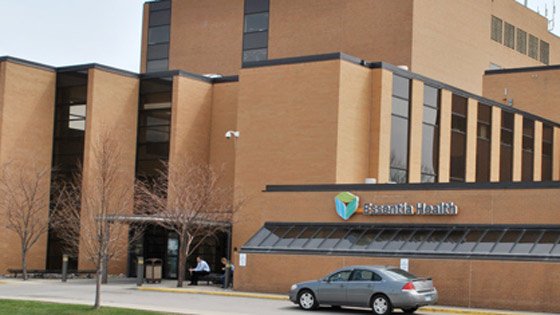Genetic Testing & Counseling
Our genetic counselor will work with you and your family to provide education, guidance, and support. This service is available in Duluth, Minnesota and Fargo, North Dakota.
Ask for a Referral


What’s a Genetic Counselor?
When to See a Genetic Counselor
- You have a close relative with a hereditary cancer, such as breast, ovarian, or colon cancer
- You’re pregnant and an ultrasound showed something unusual or you have a high-risk pregnancy
Cancer Genetic Counseling
In advance of your cancer genetic counseling session, you’ll be asked to fill out a questionnaire about your relatives’ medical history. Your genetic counselor will use this information to determine whether you or another relative may benefit from genetic testing.
Prenatal Genetic Testing
During prenatal genetic counseling, you’ll learn what genetic tests might benefit a woman of your age, medical history, and family history. Ask about a simple first-trimester genetic screening that measures the risk of Down syndrome and other chromosomal abnormalities.
Your genetic counselor may also talk with you about drugs, chemicals, or infections that affect a fetus’ development. You can use this information to protect your unborn baby’s health.
What is Genetic Testing?
Genetic testing is a type of medical test that identifies changes in chromosomes, genes, or proteins. The results of a genetic test can confirm or rule out a suspected genetic condition or help determine your risk of developing or passing on a genetic disorder.
If you choose to seek genetic testing, we'll help you determine the test that's right for you and send a sample of your blood or other body fluids to a lab. Once your results are in, we'll review them with you, address any concerns you may have, and provide emotional support if necessary.
Our genetic counselors offer easy-to-understand information and will work with you to create a preventative plan that outlines the positive steps you can take to address risk factors you can control.
Benefits of Genetic Testing
Genetic testing can be done to:
- Diagnose a disorder, disease, or condition
- Predict genetic risk for developing a medical issue
- Determine if you carry a gene for a medical concern you will not develop but may pass to your children
- Assist in determining the most effective medication and dosage for you
- Assess genetic risks for couples conceiving through in vitro fertilization Diagnose whether an unborn child will have a genetic disorder or disease
- Evaluate babies for genetic conditions and begin treatment immediately
What Common Conditions Can be Tested for?
Common hereditary diseases, disorders, or conditions that can be screened for using genetic testing include:
- Cancer
- Diabetes
- Cystic fibrosis
- Alzheimer’s disease
- Huntington disease
- Muscular dystrophies
- Inherited clotting problems
- Down’s syndrome
- Thalassemias
- Anemias
-
First Trimester Genetic Screening
During prenatal genetic counseling, you’ll learn what genetic tests benefit you. Ask about a first-trimester genetic screening that measures the risk of chromosomal abnormalities.
